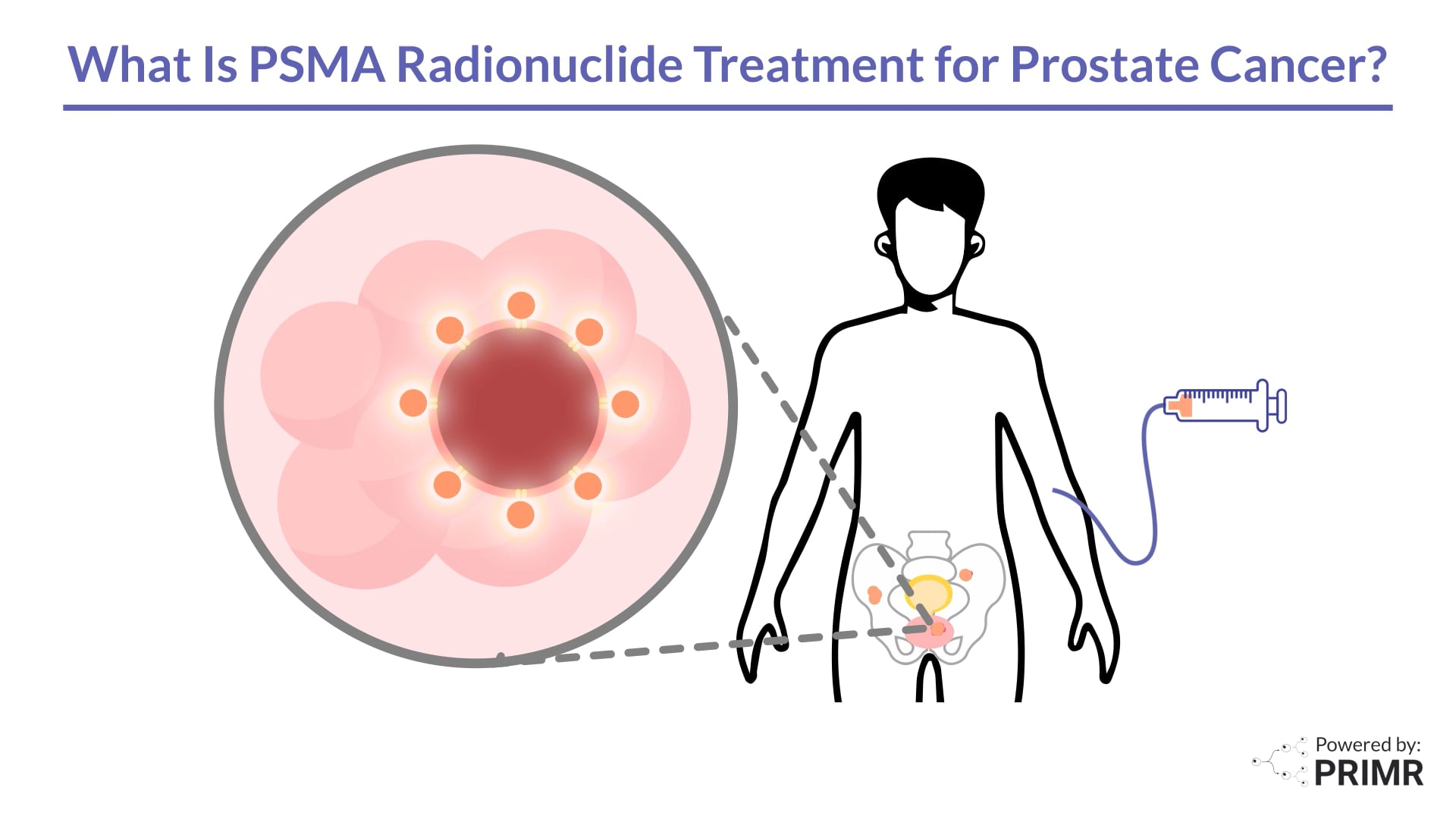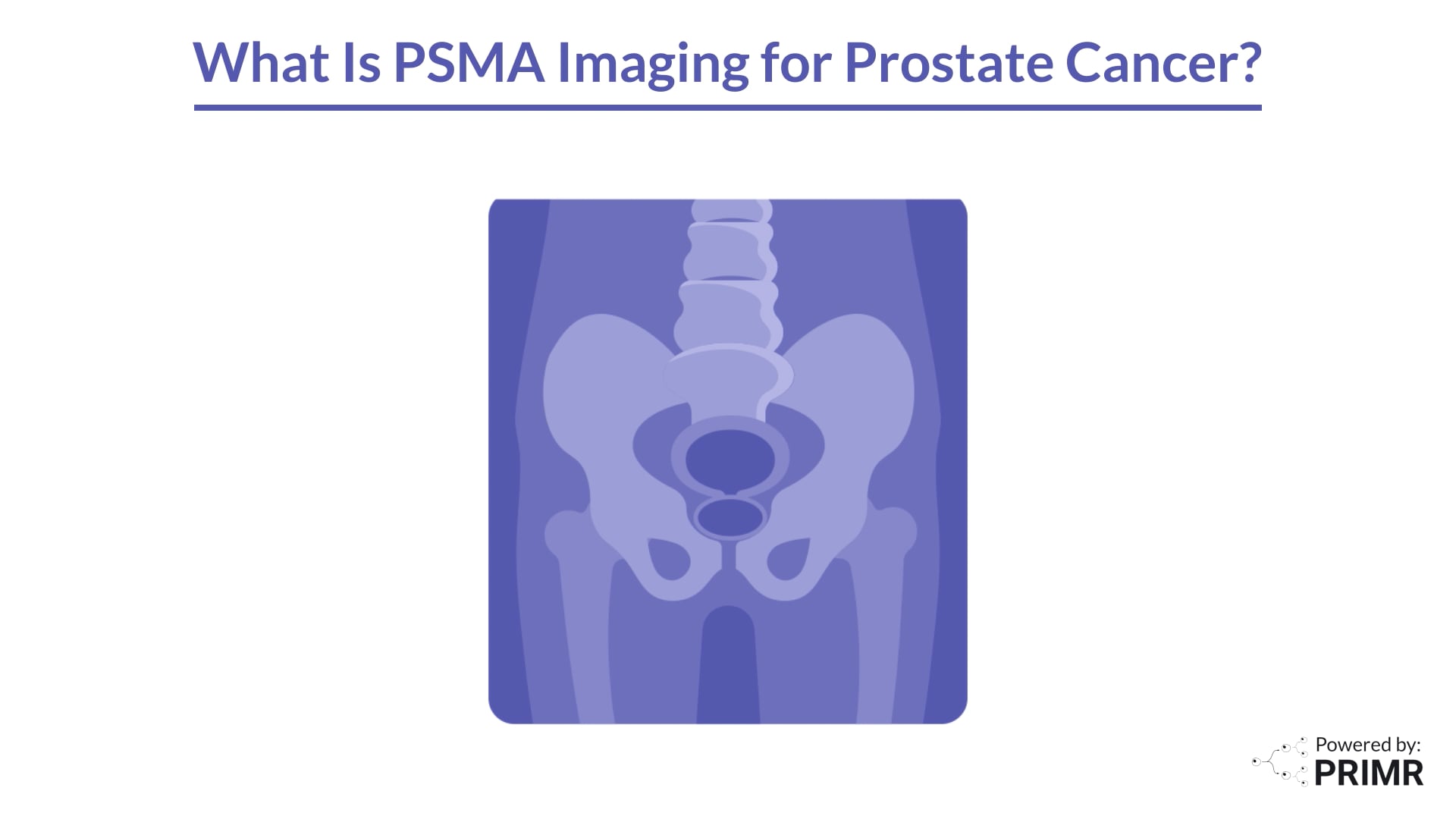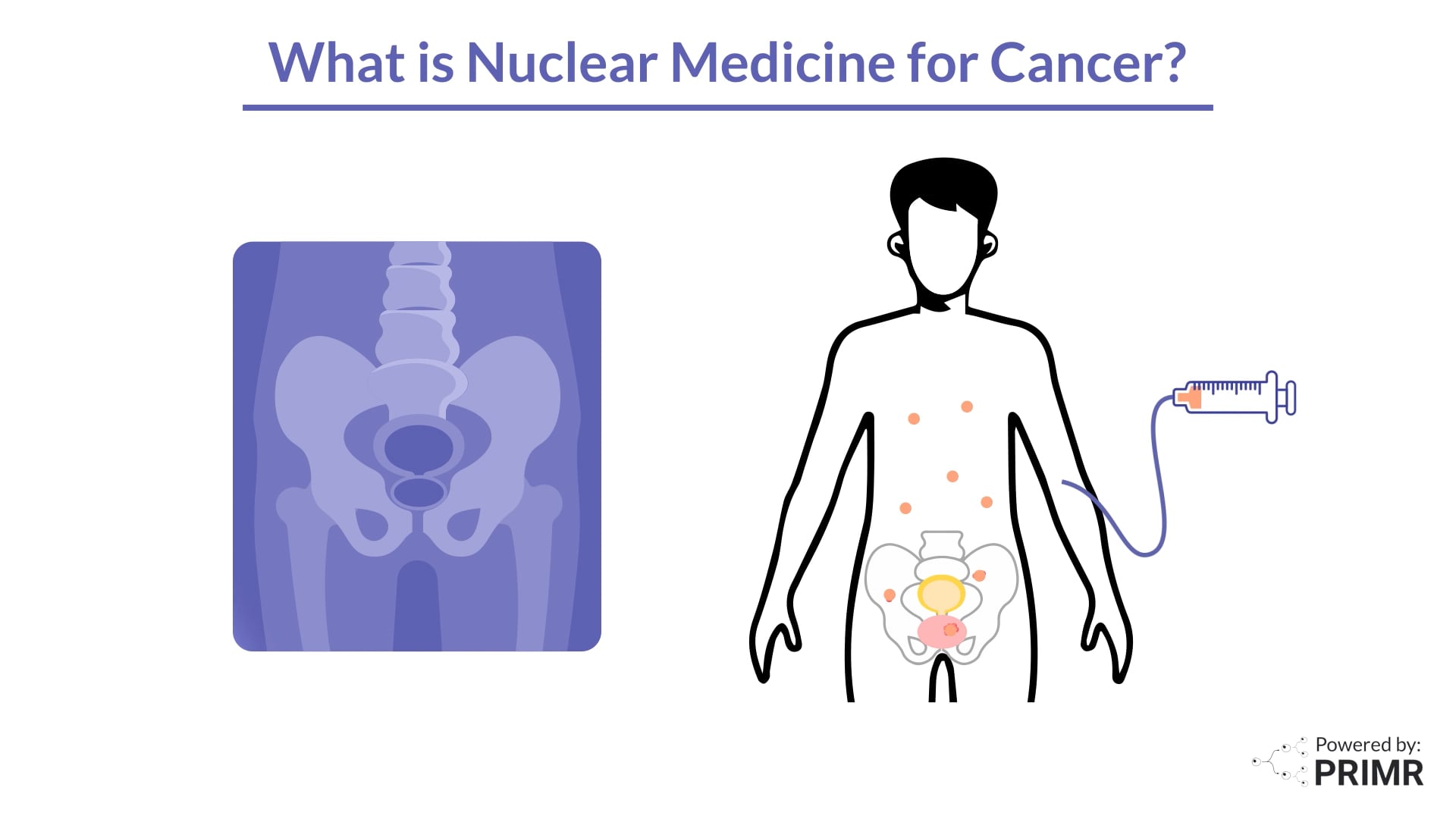PSA After Radiation for Prostate Cancer
Most men who undergo prostate radiation for prostate cancer want to know - "Did it work?"
This video explains the way a radiation oncologist thinks about PSA after radiation.
Read the full video transcript below:
After finishing prostate radiation for prostate cancer, most men want to know “how do we know it worked?”. The answer is tracking a simple blood test called the PSA.
PSA is a chemical that's normally made by the prostate gland, but it can also be made by prostate cancer cells. We can measure the level of this chemical in the blood.
On this graph, going up the Y-axis, we have a measure of PSA ranging from 0 to 10 on this scale. Across the X-axis, we measure time. To better understand PSA, let's think of a hypothetical example.
In this case, a man has his PSA tested for screening. It starts off in the low normal range but slowly rises over the course of many years. Eventually, his blood test results show an abnormally high amount of PSA. The test is repeated, which confirms a PSA elevation and prompts a biopsy. The biopsy confirms prostate cancer cells, and he chooses to undergo curative radiation.
Months after completing radiation, his PSA is checked again, and it is once again within a low and acceptable normal range. This shows that the cancer responded to the treatment.
The PSA is monitored every 6 months for several years. The PSA after radiation is not expected to go all the way down to zero; instead, it tends to bounce around within a low normal range. You should ask your doctor if your PSA is within a low normal range after radiation.
If PSA remains low for the remainder of a man's life, then he is effectively cured of prostate cancer. However, if the PSA climbs steadily over time, then he likely has had a prostate cancer recurrence. If that happens, additional diagnostic tests like scans or other treatments like additional hormone therapy may be required to control the disease.
Some men are required to undergo hormone therapy at the initial time of treatment with radiation. In this case, the trajectory of PSA over time is different. Radiation with hormone therapy usually causes the PSA to go down to zero for some duration of time that depends on how long the patient was on hormone therapy and how long it takes his body to go back to a normal physiologic state.
After his PSA recovers from hormone therapy, we continue to track the PSA the same way we would have had he never gotten hormone therapy in the first place.
This is not medical advice. Talk to your doctor about medical decisions.

.jpg)
.jpg)
%20Thumbnail.png)







.jpg)
.png)


.jpeg)








.webp)

